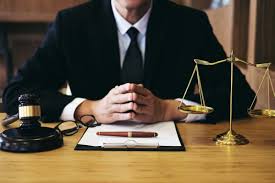Learn About The Duties Of A Criminal Defense Lawyer
Anyone charged with a severe crime that could result in incarceration should retain the services of an experienced criminal defence attorney. A solid legal strategy can assist the accused in exercising their legal rights to a fair trial. Most people find the judicial system to be perplexing and overwhelming. As a result, an attorney assists the accused by providing suitable direction, ensuring that no further errors are made.Learn more by visiting Stroleny Law, P.A.
 Suspects must appear in court for an arraignment once they have been apprehended. Attorneys can assist people in understanding why they might wish to enter a guilty or not guilty plea. Attorneys can also argue for no bail at all or request a lower amount from the judge. They can also help the accused figure out how to collect money for bail.
Suspects must appear in court for an arraignment once they have been apprehended. Attorneys can assist people in understanding why they might wish to enter a guilty or not guilty plea. Attorneys can also argue for no bail at all or request a lower amount from the judge. They can also help the accused figure out how to collect money for bail.
A preliminary hearing is held by a magistrate to determine whether there is sufficient evidence to proceed to trial. Because both parties can present evidence and witnesses, this is frequently referred to as a mini-trial. The judge next considers whether a reasonable group of jurors would find the defendant guilty based on the evidence. If this is the case, the magistrate sets a trial date. In some cases, the accused’s legal counsel may attempt to negotiate a plea bargain in order to avoid the danger of receiving a heavier sentence if the jury returns a guilty judgement.
Following that, both sides dispute over the specifics of what will be permitted in pretrial motion hearings. Before the magistrate, prosecutors and defence lawyers dispute about the types of testimony that can be used to sway jurors. If the accused made a confession under duress, for example, their lawyers can contest it and have it dismissed.
Members of the defence team begin devising a strategy for presenting their case and refuting the prosecution’s evidence. They assist in jury selection and provide opening statements when the trial begins. They must be prepared to object to any witness statements or evidence presented by the other party. The prosecution can call witnesses and turn over their evidence to the court once they have rested. The judge then turns the case over to the jury, who must come to a decision.

